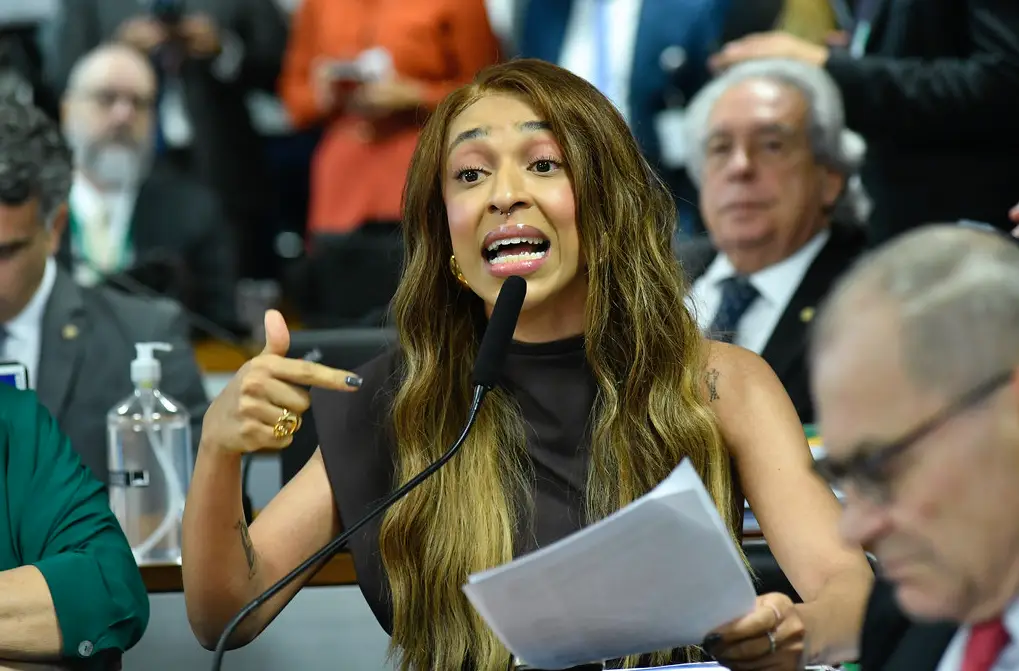In October 2024, another electoral process concluded in Brazil, with mayoral and council positions contested across the country. Although the election results still do not reflect the significant increase in Black women’s candidacies registered with the Supreme Electoral Tribunal (TSE) this year, the mobilization for Black women, in particular, to hold institutional political office grows with every election.
While the results are still modest, we are witnessing an unstoppable movement: yesterday, it was the Federal Supreme Court; today, it is major and proportional legislative seats; tomorrow, it will be the Senate.
The participation of Black women in institutional politics has been a distinctive element on the international stage, with recent examples like Epsy Campbell, Costa Rica’s vice president from 2018 to 2022, and Francia Márquez, vice president of Colombia since 2022. Epsy Campbell was not only vice president but the first Black person to hold that position in all of Latin America; Francia Márquez, meanwhile, is a symbol of activism committed to environmental and human rights causes.
In Brazil, the demand for the presence of Black women in institutional politics is a strong agenda for Black feminist sectors, a campaign that gained momentum after the assassination of councilwoman Marielle Franco and gained media relevance in 2023 when the federal government, while reorganizing the democratic game board, began its term with the mission of selecting two names for the Supreme Court.
Despite the frustration over the appointment of new justices, the campaign continued in this year’s municipal election processes, which, although seemingly smaller in scale, are representative of the contest that will take place in upcoming elections, including for major offices such as president and governor, as well as for federal, state deputies, and senators.
This will be a moment to discuss the ideal profile for such candidates. Traditionally, the synthetic response to this question would start with the concept of “person.” Thus, the chosen person should be committed to democracy, defend a secular state, advocate for social rights, safeguard the Constitution, and adhere to the ethical conduct required by the position.
In this discourse, “person” is the usual translation for a universal individual, without considering their gender, race, or other distinctive elements.
From this perspective, the demands of specific groups, based on gender and race, would be seen as superficial cultural identity movements, a recent and dangerous trend that prioritizes identity and cultural dimensions, obscuring the real problems whose basis would be economic and social inequalities. This approach would divide the field of progressive struggles and overlook that, regardless of race or gender, what is at stake is a project for a democratic and egalitarian nation.
The flaw in this conception lies in assuming that “person” is a neutral construction, devoid of gender and race. The notion of “person” often reflects positioned choices. The force with which social movements, especially feminist and racial movements, projected themselves into the political imagination from the second half of the 20th century onward questioned the neutrality of universal conceptions, exposing the impossibility of a social equality project that ignored the specificities of gender and racial conditions.
Gender and race are at the core of how the world as we know it is shaped: they are, for example, organizers of labor, defining job insertion and occupation profiles, employment and unemployment patterns, and roles in the public and private spheres, leading to differences in wages and compensation. Consequently, they determine access to materially and symbolically desirable assets, such as power and prestige. Gender and race also shape subjective predispositions we call tastes, preferences, or opinions, establishing aesthetic, affective, and choice standards.
Thus, when addressing the importance of electing Black women, we are actually answering another question: why supporting a Black woman in institutional politics has never been solely about having a Black woman in institutional politics.
Discussing the presence of Black women in institutional politics is not a mere formality. It wasn’t in past electoral processes, it wasn’t in the case of the Supreme Court, and it won’t be now or in 2026. It is an important struggle that goes beyond identity or numerical representation. It is not just about advocating for the presence of Black women in positions of power in the political sphere but about a specific profile that reflects a progressive view of social reality.
Thus, it is not simply about having a Black woman in institutional politics; it is about the quality of democracy and the social justice and equality project that we aim to develop. In short, it is about competing for a vision of the country.
Going back to the Supreme Court, in its 132 years of existence, 171 justices have served: 165 white men, 3 Black men, and 3 white women. It would be a mistake to assume that the selection of 165 white men is merely coincidental.
Parliaments are also prime examples of this distinction. Of the 513 federal deputies elected in 2022, 135 identified as Black, including 19% who had presented themselves as white in the previous election. This data is noteworthy because, if these changes in self-identification were excluded, we would have 11.29% fewer Black deputies compared to 2018. Additionally, within this group, there are 91 women, 29 of whom are Black.
Currently, one of the most emblematic spaces is the Federal Senate. In its 200-year history, Laélia de Alcántara (PMDB-AC) took office in 1982, becoming the first Black woman and the third woman in history to become a senator. After Laélia, there were only Benedita da Silva and Marina Silva—three progressive Black women with democratic and gender and race equality agendas. Thus, the race for the Senate is being closely monitored, especially because the main debates between progressives and conservatives over a national project will take place there.
In the current political landscape, two Black women stand out as having real chances of securing seats in the next two cycles: Anielle Franco, Minister of Racial Equality, and Erika Hilton, Federal Deputy. Their names have been circulating in political circles as viable candidates for progressive Black women to occupy Senate seats.
Anielle Franco represents sectors of Black feminism, but she has gained momentum not only on gender and race issues but also in broader democratic debates. In her ministry, she has promoted dialogue with political, intellectual, and traditional sectors of the Black movement, earning her legitimacy in public debate.
Erika Hilton, the first trans woman to lead a bench in the National Congress, will likely not turn 35 by 2026. She was elected the best deputy of 2024, and her proposals include protecting climate refugees and the homeless. She enjoys wide acceptance among progressives and is recognized as a charismatic public figure, with millions of followers. Undoubtedly, a strong contender for 2030.
If these predictions hold, they will be two candidates who fulfill the statement: supporting a Black woman in institutional politics is not just about having a Black woman in institutional politics; it is about having a political project at stake, particularly with agendas focused on equity and social justice.
If these predictions are confirmed: after the 2024 elections, let’s prepare for the Senate.












